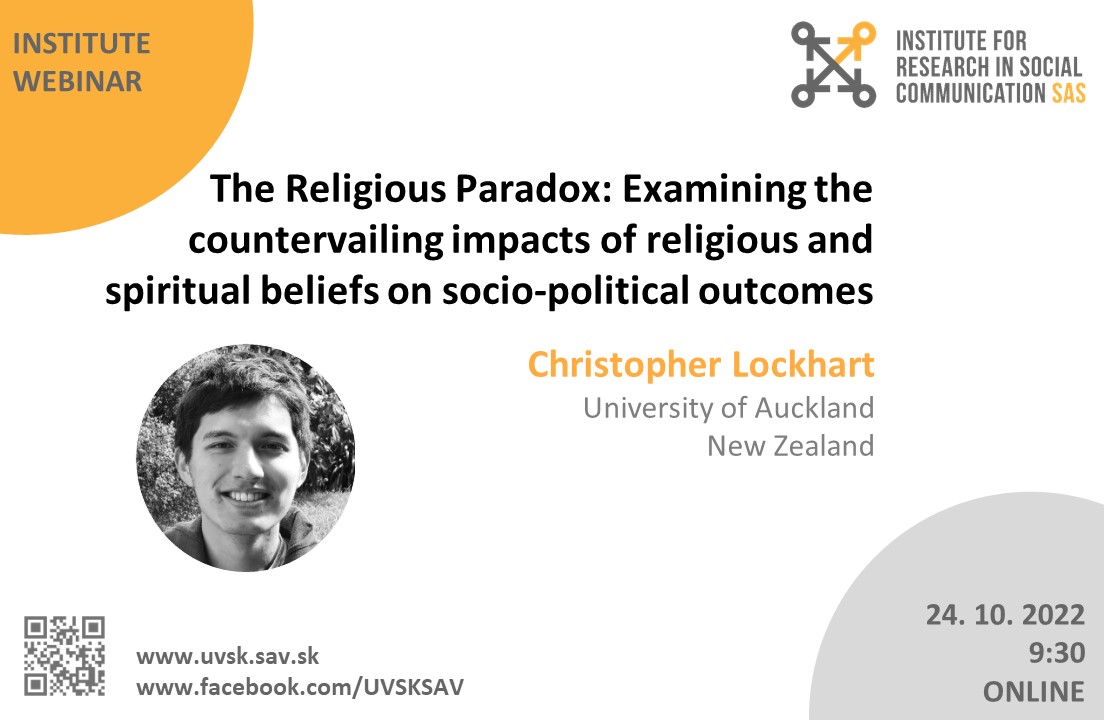Srdečne Vás pozývame na ústavný seminár s názvom The Religious Paradox – Examining the countervailing impacts of religious and spiritual beliefs on socio-political outcomes, na ktorom privítame zahraničneho hosťa Dr. Christophera Lockharta. Seminár prebehne v angličtine a jeho témou budú vplyvy religiozity na sociálno-politické postoje.
Seminár sa uskutoční online formou. V prípade záujmu o účasť, prosíme vyplňte jednoduchý formulár: https://forms.gle/R2PK79BQCyLfjp3s7
V deň konania semináru Vám budú zaslané prístupové údaje k Zoom stretnutiu. Maximálny počet účastníkov a účastníčok mimo ÚVSK SAV je 50 ľudí.
Udalosť na Facebooku: https://fb.me/e/2ueq0MYgN
Tešíme sa na stretnutie!
The Religious Paradox: Examining the countervailing impacts of religious and spiritual beliefs on socio-political outcomes
Christopher Lockhart, University of Auckland, New Zealand
Pondelok 24.10.2022, 9:30 – 11:00 CET, online
Religious beliefs have often been argued to be universally held across cultures and history, yet their socio-political impacts are often ambiguous and poorly understood. This thesis examines forms of religious identification to address two fundamental gaps in the literature on religion’s impact on political attitudes. The first oversight addressed by this thesis is to identify the temporal ordering of the oft-noted close relationship between religion and authoritarianism. The second gap addressed by this thesis is the countervailing association between religion and socio-political views, thereby demonstrating the plurality of religious identification and how different dimensions of religious belief affect political identification, environmental concern, and attitudes towards gender equality. Through four studies using data drawn from the New Zealand Attitudes and Values Study (NZAVS), I demonstrate that whilst religiosity appears to foster authoritarian attitudes, spirituality correlates with egalitarianism and thus increased liberal political identification and pro-environmental attitudes. Finally, drawing on past work, I suggest that religious collective narcissism—a threat-motivated defensiveness of the positive self-image of one’s religious group—might suppress some of the positive impacts of religious identification on intergroup relations. Collectively, this work provides insight into the multidimensional nature of religion and its countervailing impacts on socio-political attitudes.







